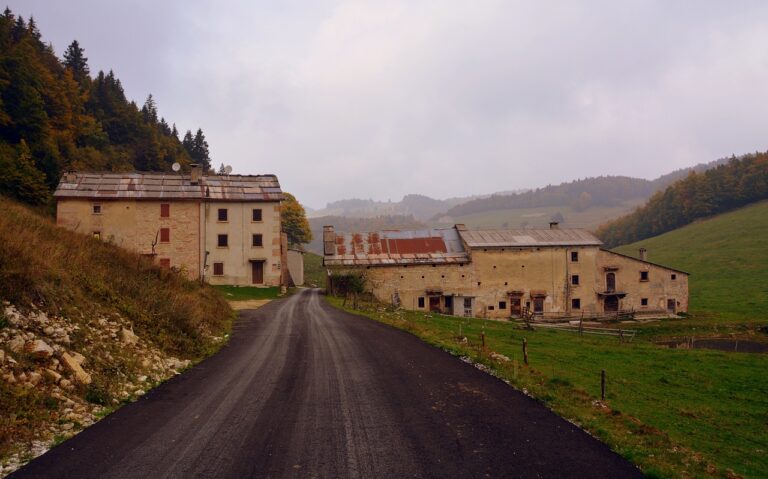Tackling Demolition Challenges Head-On: Sky247 com login password, 11xplay new id sign up, Play99exch
sky247 com login password, 11xplay new id sign up, play99exch: Tackling Demolition Challenges Head-On
Demolition projects can be daunting tasks that require careful planning, coordination, and execution. From securing permits to managing safety risks, there are numerous challenges that can arise during the demolition process. However, with the right approach and strategies in place, these challenges can be effectively tackled head-on.
In this article, we will discuss some common demolition challenges and provide practical tips on how to overcome them. Whether you are a seasoned professional in the construction industry or a homeowner embarking on a DIY demolition project, this guide will help you navigate the potential roadblocks and ensure a successful demolition process.
Understanding Demolition Challenges
Before diving into specific strategies for overcoming demolition challenges, it’s important to understand the common hurdles that can arise during a demolition project. Some of the key challenges include:
1. Safety risks: Demolition work is inherently hazardous, with risks ranging from structural collapse to exposure to hazardous materials. Ensuring the safety of workers and bystanders should be a top priority on any demolition site.
2. Environmental concerns: Demolition projects can have a significant impact on the environment, particularly if hazardous materials are present or if proper waste disposal protocols are not followed.
3. Regulatory compliance: Demolition projects are subject to a myriad of regulations and permit requirements. Failing to adhere to these regulations can result in costly fines and delays.
4. Budget constraints: Demolition projects can quickly spiral out of control if not carefully managed. Staying within budget requires meticulous planning and cost estimation.
5. Time constraints: Deadlines are common in demolition projects, whether it’s a scheduled demolition of a commercial building or a DIY project with limited time availability.
6. Unexpected conditions: From hidden asbestos to unforeseen structural issues, unexpected conditions can derail a demolition project if not properly addressed.
Tips for Overcoming Demolition Challenges
Now that we’ve identified some common demolition challenges, let’s explore strategies for overcoming them:
1. Conduct a thorough site assessment: Before starting a demolition project, it’s crucial to conduct a comprehensive site assessment to identify potential hazards, environmental concerns, and regulatory requirements. This will help you develop a detailed demolition plan and budget.
2. Hire a qualified demolition contractor: If you lack experience or expertise in demolition work, it’s best to hire a licensed and insured demolition contractor. Look for a contractor with a proven track record of safety and compliance.
3. Develop a detailed demolition plan: A well-thought-out demolition plan is essential for ensuring a smooth and efficient demolition process. The plan should include timelines, safety protocols, waste disposal procedures, and contingency plans for unexpected issues.
4. Obtain the necessary permits: Demolition projects require various permits and approvals from local authorities. Ensure that you have all the necessary permits in place before starting work to avoid costly delays and fines.
5. Implement safety measures: Safety should always be a top priority on a demolition site. This includes providing proper training, personal protective equipment, and following safety protocols to prevent accidents and injuries.
6. Manage environmental concerns: If your demolition project involves hazardous materials such as asbestos or lead-based paint, it’s essential to follow proper abatement and disposal procedures to prevent environmental contamination.
7. Monitor and adjust the budget: Demolition projects are notorious for their potential to go over budget. Keep a close eye on expenses throughout the project and be prepared to make adjustments as needed to stay within budget.
8. Communicate effectively: Clear communication is key to a successful demolition project. Ensure that all team members are on the same page regarding timelines, tasks, and safety protocols to avoid misunderstandings and delays.
9. Address unexpected conditions promptly: No matter how well you plan, unexpected conditions can still arise during a demolition project. Be prepared to adapt and address these issues promptly to prevent them from derailing your project.
10. Celebrate success: Demolition projects can be stressful and challenging, but don’t forget to celebrate your successes along the way. Whether it’s meeting a deadline or overcoming a particularly tough obstacle, take the time to acknowledge your hard work and achievements.
In Conclusion
Demolition projects present unique challenges that require careful planning, coordination, and execution. By understanding common demolition challenges and implementing the strategies outlined in this guide, you can tackle these obstacles head-on and ensure a successful demolition process. Whether you are a seasoned professional or a DIY enthusiast, following these tips will help you navigate the complexities of demolition work and achieve your project goals.
FAQs
1. How long does a typical demolition project take?
The duration of a demolition project can vary depending on factors such as the size of the structure, the complexity of the project, and any unexpected issues that may arise. On average, a demolition project can take anywhere from a few days to several weeks to complete.
2. Do I need to hire a licensed contractor for a demolition project?
While hiring a licensed contractor is not always required for small-scale demolition projects, it is highly recommended for larger and more complex projects. A licensed contractor will have the expertise, experience, and resources to ensure a safe and successful demolition process.
3. What are the most common environmental concerns in demolition projects?
Some of the most common environmental concerns in demolition projects include the presence of hazardous materials such as asbestos, lead-based paint, and mold. Proper abatement and disposal procedures are essential to prevent environmental contamination and ensure compliance with regulations.
4. How can I estimate the cost of a demolition project?
Estimating the cost of a demolition project involves factors such as the size of the structure, the complexity of the project, the presence of hazardous materials, and any additional services required (such as waste disposal). It is best to consult with a qualified contractor for an accurate cost estimate.







